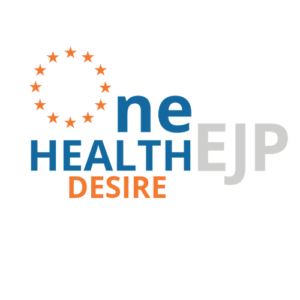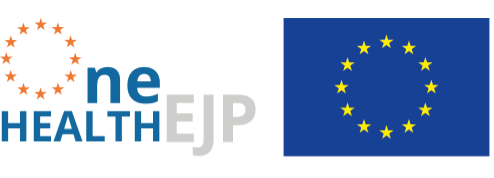Droevendaalsesteeg 6708, Wageningen, Gelderland, The Netherlands
Domplein 3512, Utrecht, Utrecht, The Netherlands
Greifswald, Mecklenburg-Vorpommern, Germany
Houtribweg 39, Lelystad, Flevoland, The Netherlands
Antonie van Leeuwenhoeklaan 9, De Bilt, Utrecht, The Netherlands

The Project #DESIRE
| Start: | October 2019 |
| Duration: | 4 years |
| Domain: | Emerging Threats |
| Members: | RIVM, WbvR- the Netherlands, FLI- Germany |
| Contact: | Dr. Miriam Maas (RIVM) |
DESIRE: Developing evidence-based surveillance for emerging rat-borne zoonoses in changing environments
Brown (Rattus norvegicus) and black rats (R. rattus) can carry a multitude of pathogens with public and veterinary health importance. Their potential to rapidly reach high population numbers creates unpredictable situations of high pathogen transmission risks. Rat populations are heavily affected by environmental changes, including urbanization and climate change. A new phenomenon with yet unknown consequences for rat-borne diseases is the “greening” of cities to improve living conditions and biodiversity and to combat heat. In addition to these risks in the urban environment, there are numerous examples of the (potential) role that rats have in food contamination and the transmission of pathogens of veterinary and human health importance (e.g. avian influenza or zoonotic hepatitis E virus in rats around pig farms and antimicrobial resistance. Therefore, the wicked problem of rat-borne diseases is an excellent example of a One Health topic that is highly relevant for (re-)emerging threats, and is linked to the topics of antimicrobial resistance and foodborne zoonoses.
Rats are synanthropic animals and with their incredible ability to adapt to new environments, they will always be part of the human living environment. Sustainable interventions that permanently reduce the carrying capacity for rats are needed in situations where the risk of transmission of pathogens creates human or veterinary risks. Targeting the carrying capacity of the environment is of increasing importance now that traditional interventions based on rodenticides are not an effective long-term solution due to development of rodenticide resistance, and may even be increasing the prevalence of rat-borne diseases.
Yet, the knowledge of rat-borne pathogens in European cities is surprisingly scarce. Existing studies mainly focus on the emerging zoonotic pathogens Leptospira spp. and Seoul orthohantavirus, but the number of zoonotic pathogens carried by rats is much larger. Information about rat populations, a vital element in risk assessment, is fragmented at best. In addition to zoonotic pathogens, an increasing number of agents with unknown zoonotic potential has been described by next generation sequencing and broad spectrum PCR methods. The knowledge gaps in the current surveillance system hamper risk assessment, early detection of changing risks, and adequate responses.
In this project we focus on the relation between urban greening and both the abundance of wild rats and the prevalence and richness of zoonotic pathogens carried by wild rats. The analyses are still ongoing. With the results that we find, we hope to gain more knowledge on how to perform smart urban greening, to assess the current hazard and risk of rat-borne zoonoses for public health in the Netherlands, and to integrate this knowledge into practical advise for municipalities and the government.
Project Assets
‘Zoonoses in the city’ Oral presentation at the Wilde Stadscafé, Utrecht, the Netherlands. 8th November 2022.
Oral presentation at Belgian Wildlife Disease Society (BWDS) & Dutch Wildlife Disease Society (DWDS) Symposium ‘Wildlife diseases going viral’, Utrecht, the Netherlands. 13th October 2022.
Poster presentation at Netherlands Annual Ecology Meeting, Lunteren, the Netherlands. 20-21st September 2022.
Poster presentation at 4th International Conference on Urban Planning (ICUP2022), Barcelona, Spain. 27-29th June 2022.
Oral presentation at OHEJP Annual Scientific Meeting, Orvieto, Italy. 11-13th April 2022.
Poster presentation at WIAS Annual Conference 2021, Wageningen University and Research, Lunteren, the Netherlands. 28-29th April 2021.
Poster presentation at OHEJP Annual Scientific meeting, online. 27-29th May 2020.
de Cock, M. P., de Vries, A., Fonville, M., Esser, H. J., Mehl, C., Ulrich, R. G., Joeres, M., Hoffmann, D., Eisenberg, T., Schmidt, K., Hulst, M., van der Poel, W. H. M., Sprong, H., & Maas, M. (2023). Increased rat-borne zoonotic disease hazard in greener urban areas. The Science of the Total Environment. 896, 165069. Advance online publication. DOI: https://doi.org/10.1016/j.scitotenv.2023.165069
de Cock, M., Fonville, M., de Vries, A., Bossers, A., van den Bogert, B., Hakze-van der Honing, R., Koets, A., Sprong, H., van der Poel, W., & Maas, M. (2022). Screen the unforeseen: Microbiome profiling for detection of zoonotic pathogens in wild rats. Transboundary and Emerging Diseases. 00, 1– 15. DOI:https://doi.org/10.1111/tbed.14759

Marieke de Cock


